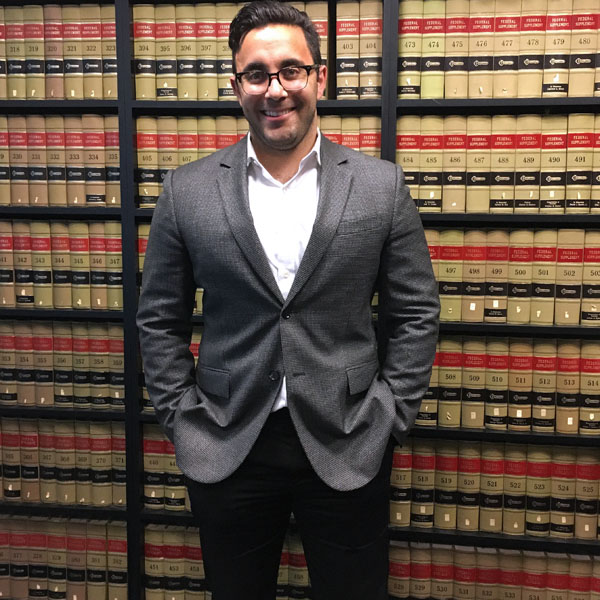Summer Job Diaries: Student Exercises Legal Writing Skills in FTC Internship

Mark Goshgarian ’19 is spending his summer as a legal intern at the Federal Trade Commission (FTC). His experience is affording him the opportunity to apply his classroom knowledge to real-world situations involving investigating and addressing consumer complaints in complex settings involving multiple parties, including civil and criminal law enforcement agencies.
How did you land your summer job?
I initially heard about the position from Loyola’s Career Development Office (CDO) at an event in the fall. Then I spoke to a friend who had worked at the FTC the prior summer about his responsibilities and experience. During the next few months, I prepared a resume and cover letter with the help of Loyola’s Career Development Office. Once I got the interview, I prepared for it by asking friends to help me with mock interviews and using materials provided by the CDO.
How did the Career Development Office help you secure the position?
The CDO provided me with a great deal of help on my resume and cover letter. Additionally, their website provided a lot of tips on how to prepare for the interview. All of this was critical to me in obtaining the position.
What is the most interesting part of your job?
The most interesting aspect of my job has been investigating consumer complaints as part of civil investigations on unfair or deceptive business practices. I have helped investigate various forms of business fraud affecting individuals across the United States. One is a joint endeavor between the FTC and a number of other civil and criminal law enforcement agencies. It has been very exciting taking part in meetings discussing strategy and seeing how the various agencies protect the American people.
What has been your most challenging assignment thus far?
One of the most challenging assignments I had was performing discovery on a complicated case and briefing my supervising attorneys on what I had found. This particular case is unique because it involves a large number of individuals engaged in thousands of commingled transactions. It was challenging to untangle the web of transactions while keeping the facts straight to write memos summarizing the legally relevant information.
What new legal skill(s) have you acquired during your summer job?
As a first-year law student, we rarely have the opportunity to witness the actual lawyering that takes place behind the opinions we read. However, my position at the FTC has provided practical experience in reviewing evidence and creating a story that will help prove our case. This can be a rather difficult task because facts and evidence are rarely clearly laid out. As a result, this position helped increase my attention to detail, hone my ability to identify legally relevant facts and explain the importance of those facts in a meaningful way.
How has your Loyola education helped you make a difference in your placement?
Loyola has provided me with the necessary skills to break down complicated legal issues—even those that we may not have covered in first-year classes—and perform comprehensive analyses. These skills have given me the confidence to approach any problem my supervising lawyers give me.
What LLS courses have you found most helpful to your position?
Without a doubt, the most helpful courses have been Legal Research & Writing and Civil Procedure. In my externship, I have performed a substantial amount of writing and legal analysis. My Legal Research and Writing class gave me the skills to effectively communicate in a clear and concise manner. Civil Procedure has also been extremely useful because, in litigation, the Rules of Civil Procedure are the levers to the court system, and issues relating to them come up often. Thus, having a deep understanding of those rules has allowed me to preemptively spot and resolve issues for my supervising lawyers.
In what additional ways has Loyola helped you map your career path?
Loyola’s faculty is deeply involved in shaping students’ careers. Professors always have their doors open to discuss career prospects and help students discover a career path. In fact, it was one of these discussions with a professor that got me interested in working for the government and led me to seek out a job working for the FTC this summer.